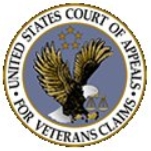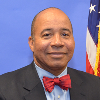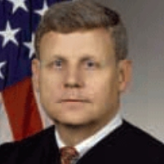Effective March 1, 1999, the Veterans’ Program Enhancement Act of 1998 re-named the United States Court of Veteran Appeals the United States Court of Appeals for Veterans Claims. Then in July 1999, after CAVC issued a decision on a case that held that the VA did not have a duty to assist veterans in developing their claims unless those claims were “well-grounded,” Congress passed, and President Bill Clinton signed into law, the
Veteran’s Claims Assistance Act of 2000
, which eliminated the “well-grounded” language, and stated that the VA was required to provide assistance in developing claims unless there was no reasonable possibility that VA aid would help the veteran’s claim.
Veterans Consortium Pro Bono Program
Snail's Pace Processing
Testimony by Brian Lawrence before the House Committee on Veterans’ Affairs
- Table of Contents
- Overview
- History
- What it Does
- Where Does the Money Go
- Controversies
- Suggested Reforms
- Comments
- Leave a comment


Robert N. Davis was appointed by President George W. Bush as a judge of the U.S. Court of Appeals for Veterans Claims (CAVC) in December 2004. He became chief judge on October 10, 2016. CAVC is not part of the Department of Veterans’ Affairs (VA). It is meant to be an independent body that reviews VA decisions regarding claims for benefits made by veterans.
Born September 20, 1953, in Kewanee, Illinois, Robert Nolan Davis graduated Davenport Central High School in Davenport, Iowa, in 1971. He earned a B.A. in political science at the University of Hartford in 1975 and a JD at the Georgetown University Law Center in 1978.
Davis started his legal career in public service, practicing appellate law with the Commodity Futures Trading Commission from 1978 to 1983. He then moved to the business and administrative law division of the Department of Education, serving there from 1983 to 1988. Also in 1983, Davis briefly served as a special assistant United States attorney in the District of Columbia as part of a federal agency exchange program.
Leaving government for academia, Davis joined the University of Mississippi School of Law as a professor, teaching there from 1988 to 2001, when he became a law professor at Stetson University College of Law in Gulfport, Florida, remaining until he joined the CAVC in 2005. From 1993 to 2000, Davis served as a Mississippi Commissioner to the Uniform Law Commission.
As a law professor, Davis published in the areas of constitutional law, administrative law, national security law, alternative dispute resolution, and sports law, while teaching courses on a variety of subjects. He is a founder of the Journal of National Security Law & Policy.
Davis is also an experienced arbitrator and mediator with the American Arbitration Association. He was a mediator with the United States Postal Service and was an arbitration panel member with the United States Olympic Committee. He joined the Navy Reserve Intelligence Program in 1988, and was called to active duty in 1999 (Bosnia) and 2001 (post-9/11).
Davis is an avid sportsman and naturalist, enjoying traditional Chinese Kung Fu and Tai Chi (Pai Lum Tao), birdwatching, hiking, biking, swimming, camping, tennis, and golf. He speaks basic Spanish and German.
-Matt Bewig
To Learn More:
Statement of Robert N. Davis before the U.S. Senate Committee on Veterans’ Affairs
Veterans Fighting Wars at Home and Abroad (by Robert N. Davis, Texas Tech Law Review) (contents page only)
Striking the Balance: National Security vs. Civil Liberties (by Robert N. Davis, Brooklyn Journal of International Law)

- Latest News
- D.C. Public Schools will Teach all Second-Graders to Ride a Bike
- New Rule in Germany Limits Sales of Sex-Themed E-Books to 10pm to 6am
- What Happened to the 6-Year-Old Tibetan Boy the Chinese Government Kidnapped 20 Years Ago?
- U.S. Ambassador to Turkey Photoshops his Hair Color to Mock Turkish Mayor
- Mystery Artist Calls Attention to Unfixed Potholes by Drawing Penises around Them
Effective March 1, 1999, the Veterans’ Program Enhancement Act of 1998 re-named the United States Court of Veteran Appeals the United States Court of Appeals for Veterans Claims. Then in July 1999, after CAVC issued a decision on a case that held that the VA did not have a duty to assist veterans in developing their claims unless those claims were “well-grounded,” Congress passed, and President Bill Clinton signed into law, the
Veteran’s Claims Assistance Act of 2000
, which eliminated the “well-grounded” language, and stated that the VA was required to provide assistance in developing claims unless there was no reasonable possibility that VA aid would help the veteran’s claim.
Veterans Consortium Pro Bono Program
Snail's Pace Processing
Testimony by Brian Lawrence before the House Committee on Veterans’ Affairs
Comments


Robert N. Davis was appointed by President George W. Bush as a judge of the U.S. Court of Appeals for Veterans Claims (CAVC) in December 2004. He became chief judge on October 10, 2016. CAVC is not part of the Department of Veterans’ Affairs (VA). It is meant to be an independent body that reviews VA decisions regarding claims for benefits made by veterans.
Born September 20, 1953, in Kewanee, Illinois, Robert Nolan Davis graduated Davenport Central High School in Davenport, Iowa, in 1971. He earned a B.A. in political science at the University of Hartford in 1975 and a JD at the Georgetown University Law Center in 1978.
Davis started his legal career in public service, practicing appellate law with the Commodity Futures Trading Commission from 1978 to 1983. He then moved to the business and administrative law division of the Department of Education, serving there from 1983 to 1988. Also in 1983, Davis briefly served as a special assistant United States attorney in the District of Columbia as part of a federal agency exchange program.
Leaving government for academia, Davis joined the University of Mississippi School of Law as a professor, teaching there from 1988 to 2001, when he became a law professor at Stetson University College of Law in Gulfport, Florida, remaining until he joined the CAVC in 2005. From 1993 to 2000, Davis served as a Mississippi Commissioner to the Uniform Law Commission.
As a law professor, Davis published in the areas of constitutional law, administrative law, national security law, alternative dispute resolution, and sports law, while teaching courses on a variety of subjects. He is a founder of the Journal of National Security Law & Policy.
Davis is also an experienced arbitrator and mediator with the American Arbitration Association. He was a mediator with the United States Postal Service and was an arbitration panel member with the United States Olympic Committee. He joined the Navy Reserve Intelligence Program in 1988, and was called to active duty in 1999 (Bosnia) and 2001 (post-9/11).
Davis is an avid sportsman and naturalist, enjoying traditional Chinese Kung Fu and Tai Chi (Pai Lum Tao), birdwatching, hiking, biking, swimming, camping, tennis, and golf. He speaks basic Spanish and German.
-Matt Bewig
To Learn More:
Statement of Robert N. Davis before the U.S. Senate Committee on Veterans’ Affairs
Veterans Fighting Wars at Home and Abroad (by Robert N. Davis, Texas Tech Law Review) (contents page only)
Striking the Balance: National Security vs. Civil Liberties (by Robert N. Davis, Brooklyn Journal of International Law)

- Latest News
- D.C. Public Schools will Teach all Second-Graders to Ride a Bike
- New Rule in Germany Limits Sales of Sex-Themed E-Books to 10pm to 6am
- What Happened to the 6-Year-Old Tibetan Boy the Chinese Government Kidnapped 20 Years Ago?
- U.S. Ambassador to Turkey Photoshops his Hair Color to Mock Turkish Mayor
- Mystery Artist Calls Attention to Unfixed Potholes by Drawing Penises around Them





Comments